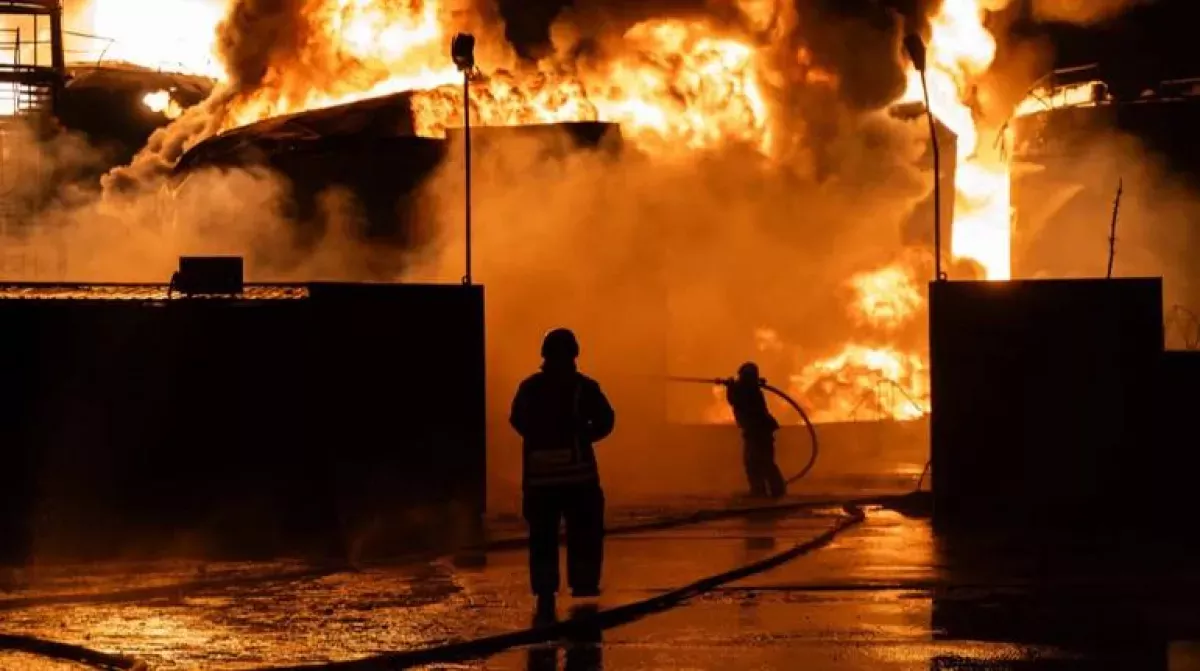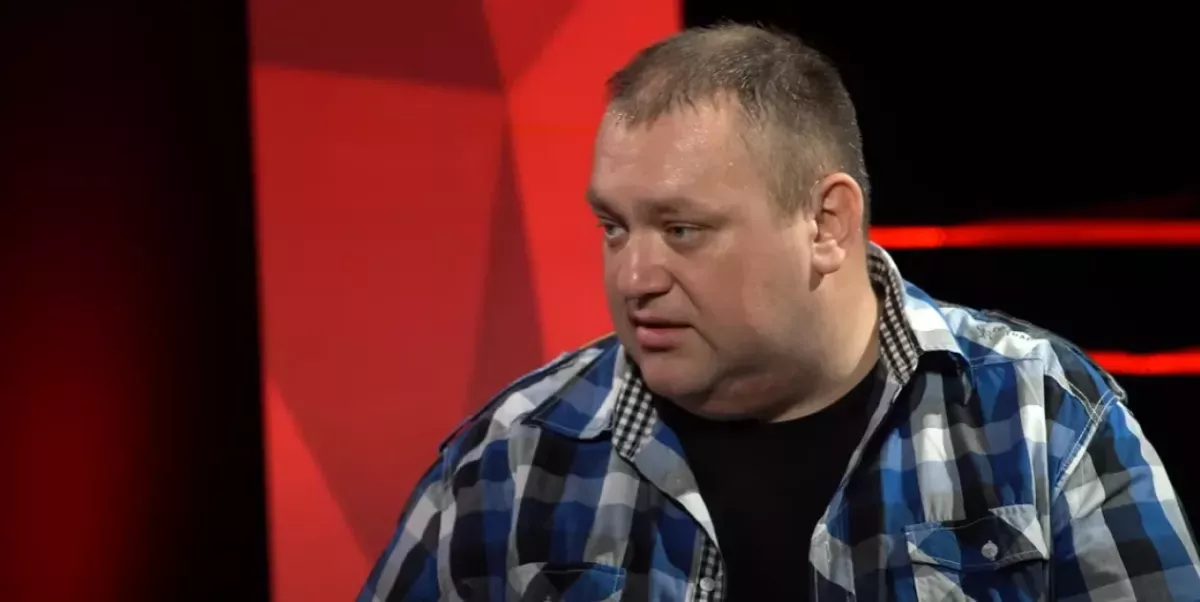Moscow has crossed “red lines” with regard to Azerbaijan Experts weigh in Russia’s attacks on SOCAR’s facilities in Ukraine
On August 17, the Russian military once again struck Ukrainian territory using drones and missiles. According to the Ukrainian Armed Forces, one of the targets in Odesa was the SOCAR oil depot. The attack involved multiple direct hits, sparking a large fire. Several storage tanks, the pumping station building, operator and weighing rooms, and technical facilities were damaged, and the depot’s perimeter fence was destroyed. The facility has a storage capacity of over 16,000 cubic meters.
This wasn’t the first time Azerbaijani energy facilities in Ukraine were targeted. On the night of August 7–8, 2025, Russian forces attacked the SOCAR oil depot in Odesa with five Shahed drones, causing a fire and damaging the diesel pipeline. Four employees were seriously injured in that strike.
Earlier attacks also hit a gas distribution station near Orlivka, a crucial part of the Trans-Balkan pipeline, which began delivering Azerbaijani gas to Ukraine on June 28.

Ukrainian President Volodymyr Zelenskyy commented on the recent Russian strike on the Odesa oil depot: “This was a deliberate Russian attack on an energy facility in Odesa owned by an Azerbaijani company. In other words, it’s an attack on our relations and on energy independence,” he wrote on his Telegram channel.
“Last night, the Russians struck the SOCAR oil terminals in Odesa. This is already the second attack on Azerbaijan’s state-owned company in recent weeks. Moscow is acting deliberately, contrary to Azerbaijan’s interests,” said Ukrainian Foreign Minister Andriy Sybiha.
He added that the attacks underscore the importance of a new level of cooperation between Ukraine and Azerbaijan, as well as the need for an appropriate diplomatic and legal response.
Prominent Ukrainian analysts also shared their perspectives on the events with Caliber.Az.

Military expert and historian Mykhailo Zhyrokhov points out that the recent tensions in Russian-Azerbaijani relations are a striking example of Moscow’s shifting policies in the post-Soviet space.
“As of summer 2025, it’s clear that Russia’s position in the Caucasus is rapidly deteriorating. While it still maintains significant influence over Armenia, where its military base is located, Azerbaijan is geopolitically lost to Moscow. In this context, all that remains for Putin is petty revenge—issuing orders to strike the energy facilities of Azerbaijan’s SOCAR company in Ukraine’s Odesa region, and arresting prominent members of the Azerbaijani diaspora in Russia on contrived charges,” Zhyrokhov said.
"Regarding the strikes, it is now clear that they are provocative in nature. After the first attacks—which could have been dismissed as accidental—and the official response from Baku, the assaults continued. Some analysts believe that Putin is betting on a quick freeze of the conflict, expecting that Azerbaijan simply won’t have time to respond to these direct attacks. It’s worth noting that Baku has warned that, if the strikes persist, it could reconsider its decision to ban the supply of weapons and ammunition to Ukraine, the expert added.
However, Zhyrokhov believes that the problems in Russian-Azerbaijani relations have accumulated to such an extent that official Baku is simply obliged to respond to Putin’s direct provocations.
“In the near future, we could see direct deliveries of weapons and ammunition to Ukraine, which is at war. Moreover, it is time for Azerbaijan to abandon Soviet/Russian standards entirely and fully transition to Western ones. This process had already begun, but now it could take a more advanced form. It may turn out that weapons of Russian and Belarusian origin will be used against Russian forces in Donbas, and this will be a direct consequence of Moscow’s failed policies in the Caucasus,” Zhyrokhov said.

Analyst and political science PhD Oleksii Buriachenko, head of the Association of Local Self-Government Bodies, the “International Association of Small Towns,” believes that the targeted Russian strikes on the SOCAR oil depot, the gas compressor station, and other fuel and energy infrastructure used to transport Azerbaijani gas to Ukraine constitute a deliberate act of international terrorism.
“These Russian strikes, the casualties, and the resulting damage have been confirmed by the media, Ukrainian officials, and President Volodymyr Zelenskyy himself, who noted that ‘this was a deliberate Russian strike on an energy facility in Odesa owned by an Azerbaijani company,” Buriachenko said.
And this marks the second attack in just a month! On August 8, Russian forces launched around ten drones at the oil depot. According to media reports, four people were injured, and over a hundred Ukrainian firefighters were involved in extinguishing the blaze. This is a clear sign of escalating interstate tensions — within just ten days, they struck the energy infrastructure of Azerbaijan’s state-owned SOCAR company in Ukraine twice. These terrorist attacks by Russia reflect weakness, a show of ostentatious superiority, and an unwillingness to acknowledge their own mistakes.
Recalling the persecution, forced takeovers of businesses, and even killings of ethnic Azerbaijanis by Russian authorities on Russian territory, it becomes clear that through these indirect yet painful attacks, Putin is attempting to exert forceful influence over Azerbaijan’s foreign policy, deliberately limiting its agency and autonomy.
Is a joint response from Ukraine and Azerbaijan needed against these systematic terrorist attacks by Russia? Absolutely. Lifting the moratorium on supplying Azerbaijani weapons to the Ukrainian Armed Forces would send the strongest signal to Russia that any further steps aimed at escalating tensions will be met with a firm, symmetric or asymmetric response. Especially given that, following the initialling of the peace agreement between Armenia and Azerbaijan, Russia’s influence in the South Caucasus has significantly declined, while the presence of U.S. security guarantees serves as an important stabilising factor and a safeguard against any FSB-style attempts at retaliation,” Buriachenko said.








